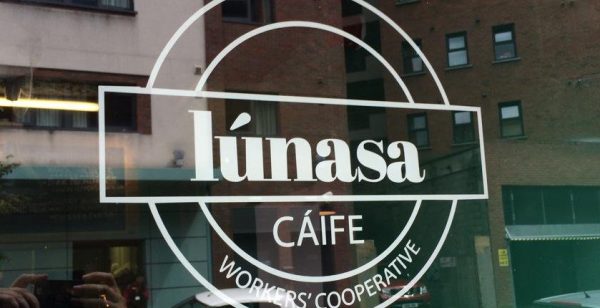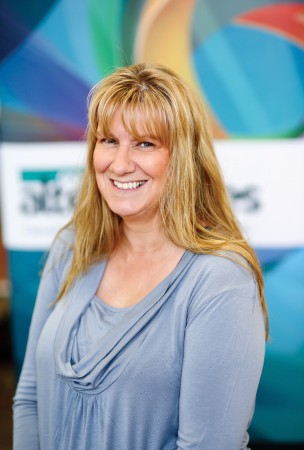COMMUNITY
February: Foster Care Co-op saves independent agency with takeover
The UK’s only foster care co-op took over a struggling not-for-profit agency to save it from closing down. The Foster Care Co-operative merged with Jigsaw Independent Fostering, which served the north west of England. Jigsaw had been struggling to cope with cuts to funding and competition from larger providers, and sought out the Foster Care Co-operative for a partnership to help keep it going.
April: Supporters Direct launches manifestos for Scotland and Wales
In the run-up to the elections in Scotland and Wales, Supporters Direct challenged the major parties to adopt its agenda and implement changes for Scottish and Welsh fans. Proposals included greater supporter involvement in the game, and that all clubs should pay staff a living wage.
June: GO-OP presents Somerset rail improvement plans
GO-OP, an open-access train operating organisation, announced proposals which would improve rail services across Somerset as soon as 2017. It has been developing a proposal for a new rail service linking the west country and the West Midlands for several years, but until recently the route had been intended to start at Westbury in Wiltshire. Now, GO-OP says it has enhanced the scheme to originate in Taunton, with stops at Castle Cary, Bruton and Frome.

August: Belfast co-op cáife looking for ‘help and solidarity’ after kitchen fire
Lúnasa Cáife, a worker co-operative in Belfast, has provided a space in the city to support and host many emerging artists, cultural events and campaigns. But three year’s hard work disappeared in July after a fire in the kitchen. In response, Lúnasa asked for “help and solidarity in forthcoming weeks and months”. It held a range of fundraising activities and set up a crowdfunding campaign, which ran until 23 September. “We have been overwhelmed with the level of support we have received so far, we would like to thank all our supporters, donators, helpers, suggestors and well-wishers,” said the co-op.

Northern Ireland’s co-operative sector could be on a par with England, Scotland and Wales if there was the political will to promote and develop it, argued Karen Arbuckle, the new chair of Co-operative Alternatives, Northern Ireland’s only dedicated co-operative development agency. “Generally there is still a lack of understanding of the co-operative model and the benefits it can provide to members and to the community,” she said. “We have been lobbying the Northern Ireland Assembly and local councils but we have considerable work to do to really get the support and recognition of the scope and opportunities for co-operative development.”
November: Community Shares Wales launches
The Wales Co-operative Centre launched Community Shares Wales to support communities who want to invest in enterprises serving a community purpose. Funded by the Big Lottery Fund Wales, the project is being delivered by the Wales Co-operative Centre in partnership with the Development Trust Association, the Wales Council for Voluntary Action and the Plunkett Foundation. It is providing support across Wales from October 2016 for three years and is working closely with the Community Shares Unit in England.
November: How charities can improve by adopting co-op principles
There has always been a gulf between the co-op movement and charitable work – but a care sector charity has drawn on mutual ideas to pioneer a governance model giving greater control to people using its services. The model, created by Learning Disability England, could revolutionise the way charities are run and bring them closer to co-operativism, by incorporating the voices of service users, their family and friends and other interested groups. Charities can adopt some of the co-op principles to work in a mutual way, provided that it doesn’t cease to be charitable.
Q&A: JAMES MATHIE, CLUB DEVELOPMENT MANAGER, SUPPORTERS DIRECT
What were your highlights and lowlights of 2016?
Gaining the agreement of the English football authorities, as part of the government group, to ensure club leaders in the top four divisions must meet with supporters a minimum of twice a year represents a long overdue breakthrough for our Supporters Trusts. There was success on the pitch too, notably AFC Wimbledon winning promotion to the third tier after a play-off win at Wembley, and in rugby league where Rochdale Hornets won promotion to the championship. Although the number of co-operatively owned clubs reached 50, it was sad to see AFC Telford United – long-time stalwarts of the model – revert to a private ownership structure.
What are you most looking forward to / worrying about for your sector / for the co-operative movement next year?
We are very pleased to have a new chief executive at the helm, in Ashley Brown who led the supporter takeover at Portsmouth FC. The first government sports strategy in over ten years was released earlier in the year – Sporting Future: a new strategy for an active nation – which provides a significant shift from simply acheiving more participation and more medals to recognising the importance of strong clubs with good governance, financial sustainability, which are ready to attract social investment. We hope that leads us to work across more sports and grassroots clubs to help grow the sector.
ENERGY
January: Lighting up Manchester with community energy
Eighteen organisations across Manchester came together to launch Community Energy GM – a project aimed at lighting up the city with community-owned solar power.
![Panels installed by NICE at YMCA Londonderry in summer 2015 [photo: Jack Farrell/Hive Studios]](https://www.thenews.coop/wp-content/uploads/ymca/de/ymcalderry-600x800-1-338x450-1.jpg)
May: Second dawn for Northern Ireland’s only solar co-op
Northern Ireland’s only solar energy co-operative launched a second community share offer after high demand. NICE (Northern Ireland Community Energy) is aiming to raise £130,000 – enough to install solar panels free of charge for up to ten charitable and community organisations. So far almost 40 organisations have expressed an interest in the project, which could halve their electricity bills.
October: Environmental co-op named Social Enterprise of the Year
Renewable energy co-operative Dulas has won the highest honours at the Social Business Wales Awards. The worker
co-op, founded in 1982, delivers renewable energy solutions to businesses, landlords and charities and has worked on multiple projects in the UK and abroad. It was named Social Enterprise of the Year at a ceremony at Liberty Stadium in Swansea on 28 September. The awards are organised by Social Business Wales project, which is delivered by the Wales Co-operative Centre.

